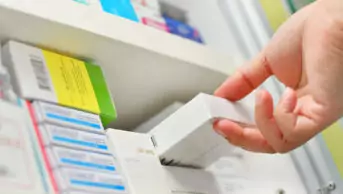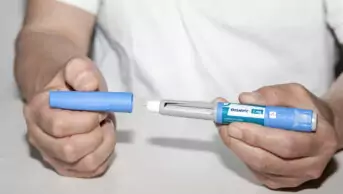
Shutterstock.com
All strengths of the epilepsy medicine Gabitril (tiagabine; Teva) will be out of stock in the UK until the end of October 2019, the drug’s manufacturer has said.
In a statement by the Epilepsy Society, a UK charity for patients with epilepsy, published on 20 August 2019, Teva said it had extended its return to market date from 30 September 2019 to “the end of October [2019]” as a result of issues in the manufacturing process that it said are out of its control.
Teva’s statement added that the 10mg Gabitril tablets “may experience further disruption in supply in early 2020”.
The supply warning comes after the Epilepsy Society wrote to health secretary Matt Hancock in April 2019, calling for him to to launch an “urgent review” of the medicines supply chain following a “steep rise” in the number of patients unable to access their epilepsy medicines.
The Epilepsy Society first alerted patients of supply issues with Gabitril on 6 August 2019.
However, its latest statement added the following response from Teva: “Due to factors outside our control, part of the manufacturing process to make Gabitril has had problems that are affecting supply. This is a Europe-wide issue, and we expect UK batches of all strengths to be released to pharmacies at the end of October.”
The statement added that the company is “very sorry” and “not happy with this situation, but we’d like to reassure all patients that we are working hard to resolve it as soon as we can”.
Eisha Gosrani, pharmacy manager at the Epilepsy Society, said the Gabitril shortage “is particularly worrying as there are no generic alternatives to this medication”.
“People who are prescribed it may have to be offered a different epilepsy medication and then there is the risk of a breakthrough seizure,” she said. ”This can impact on employment, education and relationships. And, of course, one seizure means you can no longer drive.”
She added that the shortage “is not just about Brexit — it is about manufacturing issues in the supply chain and this is something that needs reviewing on a long-term basis”.
Shelley Jones, consultant pharmacist in neuroscience at King College Hospital, told The Pharmaceutical Journal that shortages for epilepsy medicines “have become an everyday part of life,” adding that “it does feel like they are becoming more frequent”.
Even where an alternative to a patient’s usual medication is available, Jones said that a sudden change in prescription can trigger anxiety.
“Changing formulations can be quite disconcerting for the patient,” she said.
“Some people with epilepsy also have learning difficulties or other conditions around their epilepsy,” Jones explained, adding that, for people with learning difficulties, “just changing the colour of a tablet, or changing the way it’s packaged, can be quite unnerving when you’ve got a routine and you’re confident with what you’re doing”.
Clare Pelham, chief executive at the Epilepsy Society, said that the charity had been “working closely” with the Department of Health and Social Services to ensure continued supply of medicines in the event of a no-deal Brexit.
But she added that “medication shortages have been an ongoing issue that pre-dates Brexit and we have imminent discussions planned with the Department about a review of the supply chain for epilepsy medication”.
In a seperate statement, also published by the Epilepsy Society on 20 August 2019, medicines manufacturer Sanofi said its epilepsy medicine Epilim (sodium valproate) and Frisium (clobazam) are expected to be back in stock “before the end of August 2019”.
On 2 August 2019, Sanofi published a statement warning of the temporary delay to the delivery of Epilim and Frisium owing to “the implementation of a new IT system by our third-party logistics provider” at its warehouse in Chapeltown, South Yorkshire.
You may also be interested in

Government advises chief pharmacists to coordinate aid between trusts amid radioisotope shortage

Mandatory ‘eight-week buffer stock’ requirement not met by medicine suppliers, reveals audit
